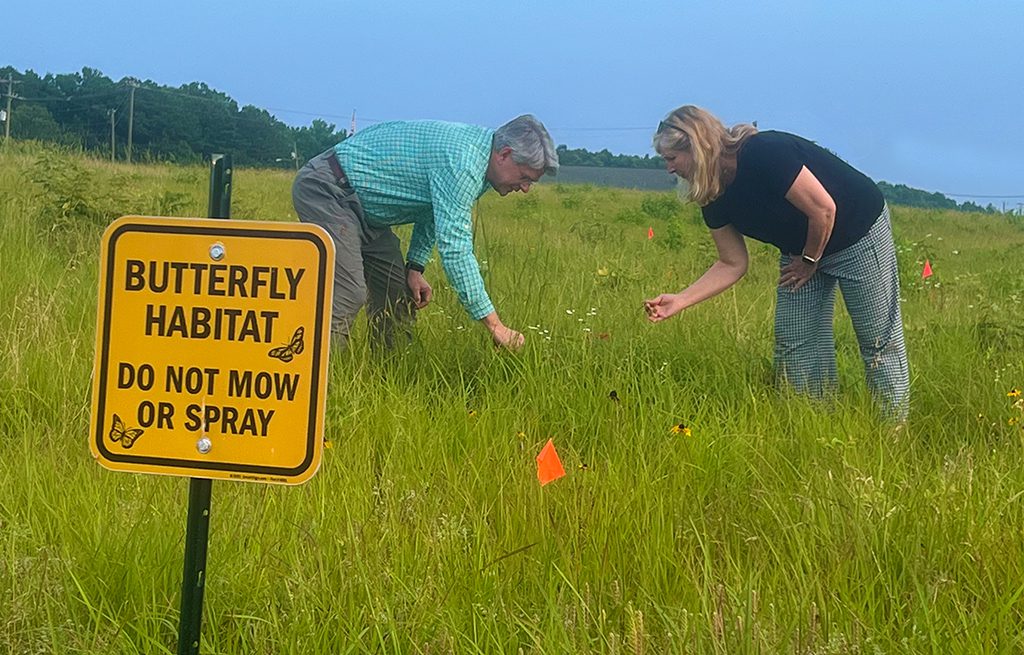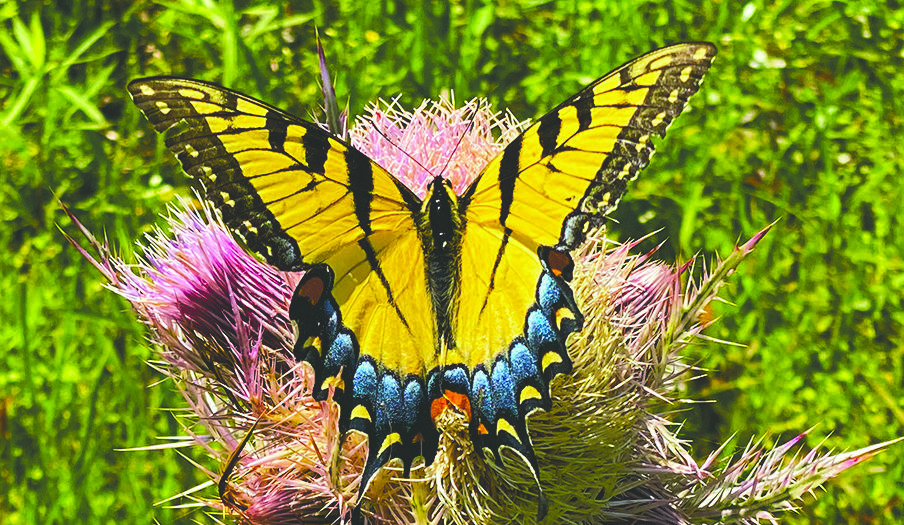By Luke Britt/Editor
Call it a field of dreams.
Where most people saw a field of tall grass and weeds, Judge Jay McCallum and wife, Deanna, saw a native plant habitat teeming with pollinating insects and worthy of something more than the sharp end of a mower blade.
“We noticed a lot of butterflies and bumble bees in that field when we took walks, and that made us curious,” Judge McCallum said. “When we got in there, we realized this really diverse mixture of native plants was attracting the pollinators,” Judge McCallum said.

The field, located behind Brookshires, is home to 126 species of plants, more than 80 percent of which are native to Louisiana. We know this because the McCallum’s commissioned botanist John Michael Kelley to survey and catalog the field, which Kelley began calling the Farmerville Meadow.
The McCallum’s also realized that because the 4-acre field is parish property it was destined to be mowed sooner rather than later. Kelley in his report described in detail how mowing the field in the typical fashion – everything, all at once – would allow certain fast-growing, non-native species to overrun the field.
“Mowing the field would really undermine what nature is doing there,” Deanna said, “so we approached the parish about just letting it be.”
The request couldn’t have been more timely, with National Pollinator Week set for June 19-25.
The McCallum’s had to be out of town when the Police Jury met on June 6, so D’Arbonne Master Gardeners President Connie Snell stepped up and made the request on their behalf.
“Anyone with a garden or who just loves nature can tell you that there aren’t as many bees and butterflies around as there we when we were kids,” Snell said. “So many pollinating insect species have disappeared, but we have an opportunity with this field to increase the number of pollinators in our area.”
Snell asked the jury to suspend mowing of the field for the foreseeable future, and the jury voted unanimously to grant that request.
“The beautiful thing about this project is that is doesn’t require anyone to do anything, but rather to not do anything. Just let it be,” Judge McCallum said.
According to the Center for Biological Diversity (CBD), more than half of North America’s 4,000 native bee species are in decline, with 1 in 4 species at risk of extinction. The news isn’t any better for butterflies, which the CDB also warns is losing species rapidly.
The relationship between pollinators and native species is the key, McCallum explained.
“Native plants species have adapted to our climate our soil, and pollinators have adapted to the native plants species,” Judge McCallum said. “They are perfectly adapted to each other, as God intended.”
The McCallum’s hope to inspire others in the community to embrace native plant species that promote a healthy pollinator population. Their efforts received praise from the Louisiana Native Plant Society (LNPS).
“Louisiana has a rich natural history going back many thousands of years, when the plants and animals of this place shared crucial intertwined relationships,” LNPS President Tammany Baumgarten wrote in a letter to the McCallum’s. “Union Parish is setting a great example to other Louisiana communities on how to value and preserve natural biodiversity and live with the land, not against it.”
 fgazette.com Community news site for Union Parish Louisiana
fgazette.com Community news site for Union Parish Louisiana
